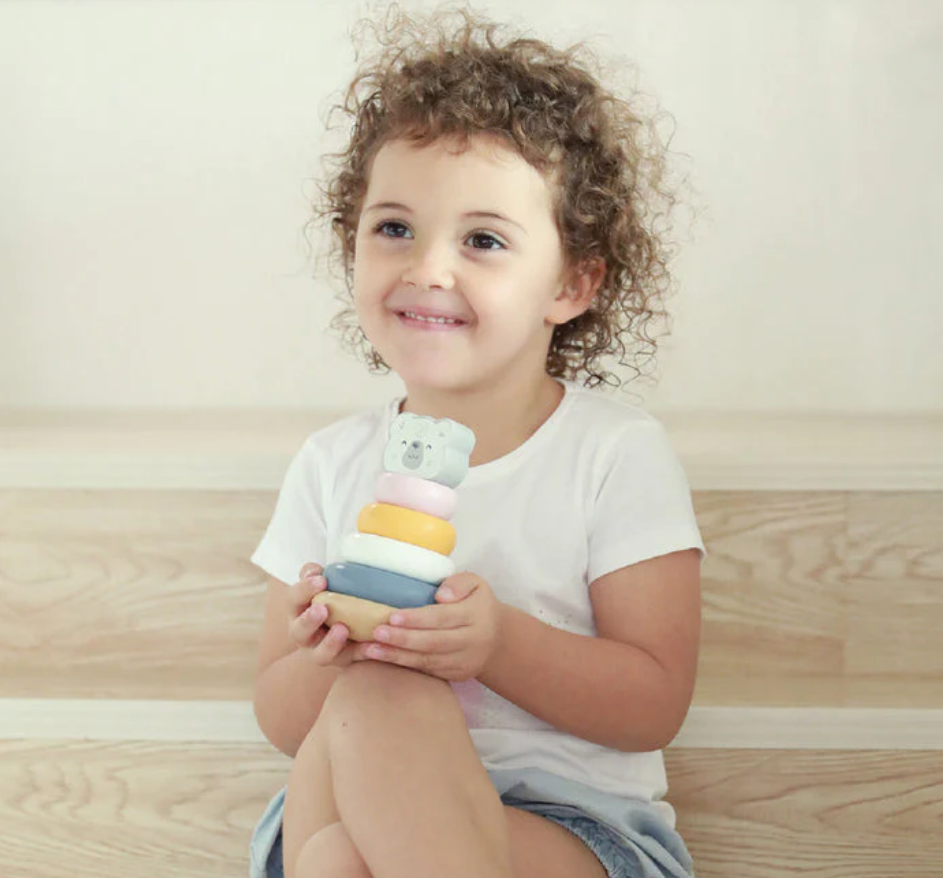
Share
The Timeless Benefits of Children Playing with Wooden Toys
In today’s digital age, where screens and gadgets seem to dominate every aspect of our lives, it can be refreshing to remember the joy and value that comes from traditional toys. Among these, wooden toys have stood the test of time, offering countless benefits to children as they engage in imaginative and tactile play. Whether it’s a wooden block set, a toy train, or a classic rocking horse, wooden toys not only hold sentimental value but also provide real developmental advantages for young minds. Here’s why wooden toys are a great choice for children.
1. Encourages Imagination and Creativity
One of the most significant benefits of wooden toys is their ability to spark creativity. Unlike plastic toys that are often highly detailed and specific in their function, wooden toys are simple, open-ended, and versatile. A wooden block, for example, can become anything a child imagines—a castle, a bridge, a house, or even an abstract sculpture. This open-ended nature encourages children to use their imagination, which is a crucial part of their cognitive development.
2. Promotes Fine Motor Skills Development
Wooden toys, such as stacking blocks, puzzles, or building sets, help children develop fine motor skills by engaging their hands and fingers in activities like stacking, arranging, and fitting pieces together. These physical actions support the development of hand-eye coordination, dexterity, and spatial awareness. As children manipulate the pieces, they learn about balance, symmetry, and proportion—all while having fun.
3. Durability and Longevity
Wooden toys are known for their durability. Unlike plastic toys, which may break or wear out quickly, high-quality wooden toys can withstand rough play and last for generations. This durability not only makes them a sustainable choice, but it also means that they can be handed down to siblings, friends, or future generations. The timeless appeal of wooden toys lies in their ability to last, making them an investment that goes beyond one child’s childhood.
4. Encourages Unstructured Play and Less Screen Time
In a world filled with digital distractions, wooden toys offer a refreshing break. They encourage unstructured play that requires children to think critically, problem-solve, and engage physically with the toy. This type of open-ended play is crucial for fostering healthy brain development. Wooden toys are also free from screens and batteries, which means children get to experience the joy of imaginative play without the need for technology. This can be a great way to limit screen time while still providing an enriching experience.
5. Environmentally Friendly
More parents are becoming conscious of the environmental impact of the toys they purchase. Wooden toys are made from natural materials and tend to have a much smaller environmental footprint than their plastic counterparts. Many wooden toys are sourced from sustainably managed forests and are non-toxic, making them a safer, eco-friendly option for children. When you invest in wooden toys, you’re not only providing your child with a quality product but also teaching them the importance of sustainability and environmental responsibility.
6. Sensory Stimulation
Wooden toys often have a unique texture and feel compared to other materials. The natural grain of wood, combined with its weight and solidity, offers a different sensory experience that can help engage a child’s senses. From the smooth surface of a wooden puzzle piece to the satisfying sound a wooden car makes when rolling across the floor, these tactile experiences provide sensory stimulation that enhances a child’s overall development.
7. Encourages Social Interaction and Sharing
Many wooden toys, such as train sets, dollhouses, or board games, are designed for multiple players. This encourages children to play together, share, negotiate, and collaborate. These types of interactions foster essential social skills, including communication, teamwork, empathy, and problem-solving. In today’s connected world, fostering these face-to-face interactions can be incredibly beneficial for a child’s emotional and social development.
8. Timeless Appeal
Perhaps one of the greatest advantages of wooden toys is their timeless quality. The simplicity, beauty, and craftsmanship of wooden toys make them as appealing to adults as they are to children. These toys are often passed down through generations, creating a lasting legacy that can carry memories of childhood for years to come. Their classic look never goes out of style, and they have a certain nostalgic charm that modern toys often lack.
9. Encourages Focus and Concentration
In an age where multitasking and distractions are commonplace, wooden toys can encourage focused, mindful play. The simplicity of wooden toys allows children to concentrate on one activity at a time. This type of focused play not only helps improve attention span but also allows children to engage deeply with the toy and the activity at hand. This practice of sustained concentration can have a positive impact on other areas of life, including schoolwork and hobbies.
Conclusion
While many modern toys are designed to entertain, wooden toys stand out by offering a more holistic approach to play. They promote creativity, physical coordination, environmental consciousness, and social interaction, all while providing a tangible connection to nature. The benefits of playing with wooden toys extend far beyond just fun—they play a significant role in a child’s development, making them an invaluable addition to any toy collection. If you’re looking for a gift that combines educational value with timeless appeal, wooden toys are the perfect choice.
